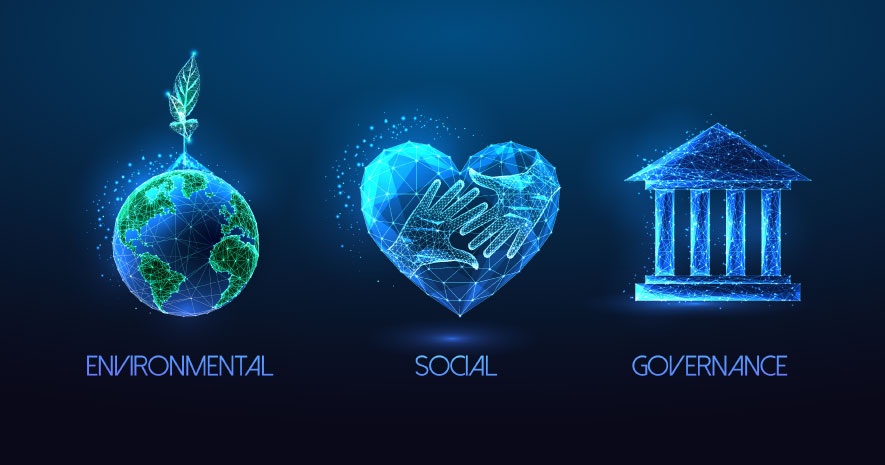While it is well understood that the acronym ESG stands for environmental, social, and governance, a deep dive into the complex web of ESG frameworks, standards, and regulations is needed to truly understand an organization’s ESG risks, opportunities, and available strategies. At its core, ESG provides a framework for measuring the impact ESG issues have on a business through the eyes of a broader set of stakeholders. Once an organization sets sustainability goals, ESG drives corporate accountability by setting expectations around tracking a company’s progress toward its commitments to acting sustainably and responsibly over the long term.
ESG promotes the ongoing process of assessing, monitoring, and improving how businesses operate sustainably through metrics-based reporting. The Inflation Reduction Act (IRA) of 2022, which President Biden signed into law on August 16, not only directly supports these ESG principles, but also incentivizes ESG investing, earmarking $369 billion for climate change and green energy investment over the next ten years. This significant commitment to a sustainable future aligns the legislation with the principles of ESG.
From an environmental perspective, the IRA extends and enhances many of the existing energy-related tax credits and incentives, including those for:
- Renewable electricity investment and production
- Energy storage
- Carbon capture
- Production of clean hydrogen
- Sustainable aviation and biofuels
- Electric vehicles and charging infrastructure
- Advanced domestic manufacturing
- Greenhouse gas reductions
The IRA also supports social policies, tying many credit amounts to the satisfaction of prevailing wage and apprenticeship requirements, as well as incentivizing investment in certain low-income and energy communities. Additionally, the IRA targets job creation in the U.S., providing tax credits for domestic manufacturing, allowing tax-exempt entities to take advantage of the tax benefits associated with clean energy investments, and providing incentives for the use of domestic content.
Overall, the act modifies many of the current energy-related tax credits and introduces significant new credits and structures intended to facilitate long-term sustainable investment.






